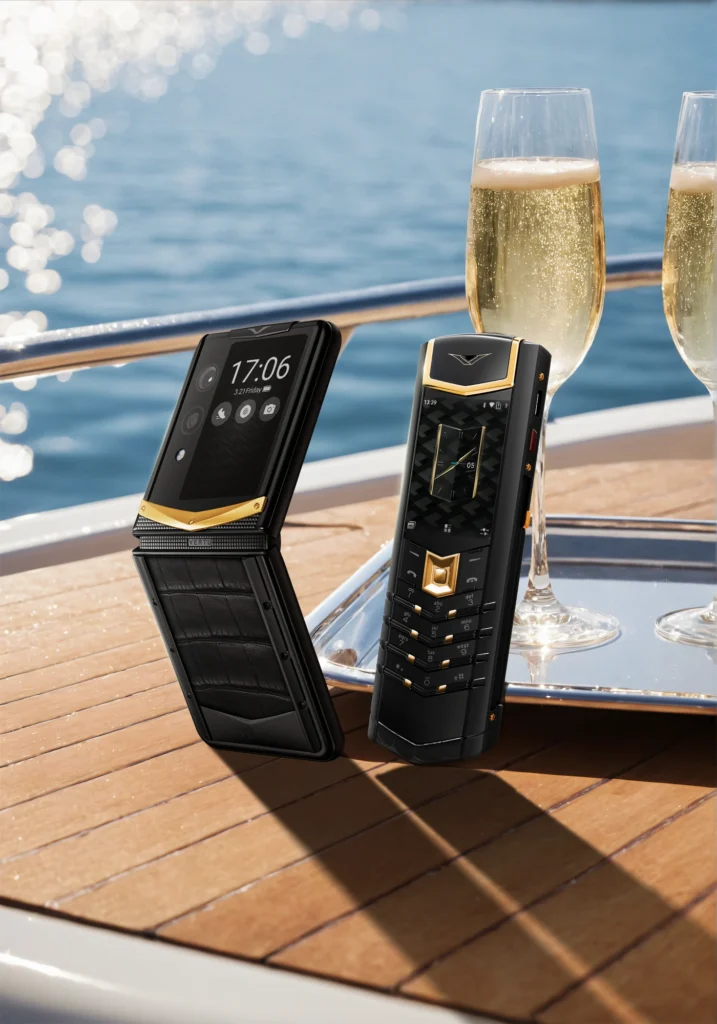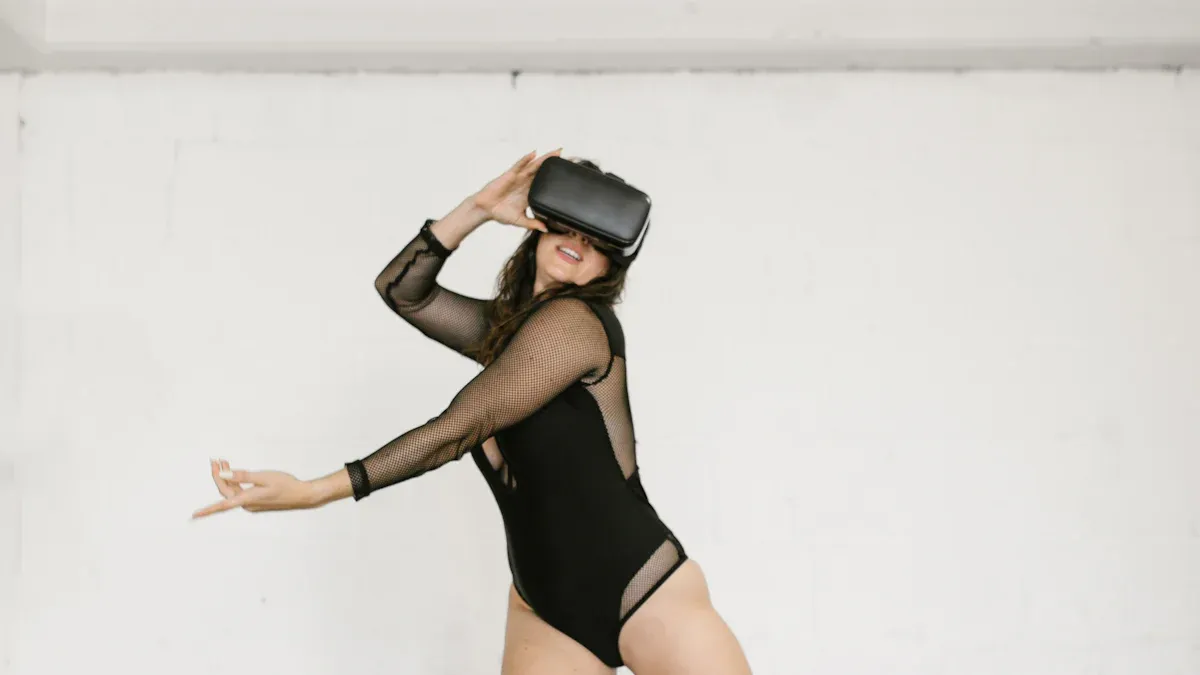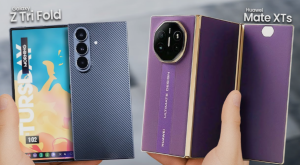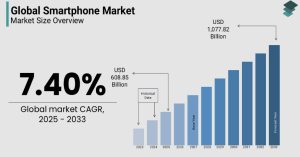
AI leads the luxury tech revolution in 2025. Luxury brands utilize AI to create unique experiences that feel personalized for each individual. Every year, more luxury brands embrace AI technology.
Luxury brands like Prada and Burberry leverage AI to engage with customers. They also employ AI to ensure their products remain authentic and secure.
“Luxury needs to interact with customers to stay important,” says Marshal Cohen, chief retail advisor at Circana.
You will notice an increase in innovative digital experiences, along with new concepts that contribute to environmental sustainability. AI plays a crucial role in helping luxury brands connect with younger audiences.
Key Takeaways
- AI helps make shopping feel special for each person. This makes customers feel important and want to come back. Luxury brands use AI to guess what will be popular next. They also learn what customers like, so they can make better products. Digital experiences let customers interact with brands in new ways. These experiences help people feel more connected. AI helps luxury brands pick materials that are good for the planet. It also helps them waste less. Brands need to use technology but also keep a human touch. This helps them stay real and keep customers’ trust.
AI-Driven Personalization

Hyper-Personalized Experiences
Luxury brands use AI to make shopping feel special. They look at your data to learn what you like. You get suggestions that fit your style and interests. This helps brands give many people unique experiences.
- AI checks what you buy and shows items you may want.
- You get lookbooks made for you from past buys and new styles.
- Brands use your location to guess your needs and show previews.
Stitch Fix mixes AI with real stylists. You get fashion tips that feel right for you. This makes you happier and want to shop again.
Personalized shopping makes customers happier and more interested. It also helps brands keep loyal shoppers.
Luxury brands now have virtual stylists and helpers. Ralph Lauren uses an AI stylist to give quick advice. This tool makes choosing clothes easier and less stressful. You can shop with confidence and get great service at home.
- AI video shopping lets you see products any time.
- Videos you can shop from can make people buy 80% more.
- After watching, you are much more likely to add things to your cart.
Personalization helps luxury brands do better in business. McKinsey & Company says it can lower costs by half. It can also raise sales by up to 15%. Marketing works better by up to 30%.
Luxury brands need loyal customers. When you get special attention, you feel important. This makes you buy again and stay loyal.
Predictive Customer Insights
AI in luxury uses smart tools to guess what you want. Brands study your habits and feedback. They use machine learning to predict trends and improve products.
- Smart tools help brands know what you want next.
- Feedback helps brands make better products and messages.
- Machine learning makes guesses about your choices more correct.
You get special messages and previews based on your likes. This makes shopping more fun and interesting.
| Evidence Description | Source |
|---|---|
| AI tracks what customers like right away. It gives suggestions based on mood, lifestyle, and online actions. | The Impact of AI and Big Data on the Development of Luxury Retail |
| AI can make product suggestions 80% more accurate. This helps customers get better choices and builds loyalty. | Trouble Personalizing Shopping Experiences? AI Can Increase Product Recommendations' Accuracy by 80% |
| AI uses customer info to give automatic suggestions. This makes shopping more fun and personal. | How to leverage AI product recommendations and transform your onsite engagement |
Luxury brands check how well AI works for them. They look at things like how long people use AR/VR, how feelings change from special content, and how their community grows.
| Metric Type | Description | Purpose |
|---|---|---|
| AR/VR Use | Checks how long people use it and what features they try. It also looks at feelings. | To see how much people like AR/VR. |
| Feelings Change from Special Content | Looks at how feelings and trust in the brand change over time. | To see if people feel better about the brand. |
| Community Growth | Counts active users and what users share. | To see how much people join and support the brand. |
You see luxury brands use AI to make shopping feel special for you. This makes your experience better and makes you want to shop again. The luxury world keeps changing, making shopping more fun and rewarding.
“Special luxury suggestions in tourism can make customers happier. This shows AI can make customer experiences better.
Luxury Tech Revolution
Immersive Digital Activations
You notice technology changing how you connect with brands. Now, you can enter digital worlds that seem real. Retail brands use artificial intelligence to make these digital experiences. These activities help you feel special and close to luxury items.
For example, Intel’s booth had a cool interactive kiosk. ai.io and Noomo Agency made it. You try sports drills and brain tests there. The system gives you quick feedback and tells you about yourself. This activity won awards for being fun and showing what artificial intelligence can do.
Rimowa’s online flagship store is another example. You walk through a digital store that looks real. An AI Sales Assistant helps you pick products that fit your style. You get suggestions just for you, so shopping feels easy and special.
Immersive marketing lets you see luxury items like you are in the store. You get a full experience and feel closer to the brand. This helps you remember the brand and feel like you belong.
| Aspect of Immersive Experience | Impact on Brand Perception |
|---|---|
| Emotional Connections | Makes the brand more wanted |
| Personalized Interactions | Shows the brand is special |
| Unique Experiences | Helps you remember the brand |
- Immersive marketing makes you feel like you are really there.
- You look at luxury items as if they are in front of you.
- This way, you get a full experience and feel important.
Business Model Transformation
Technology is changing how luxury brands work. Artificial intelligence helps brands guess trends and make products faster. You see brands using tech for online fashion shows and cool displays. These tools make shopping more fun and interesting.
AI makes online shopping better by checking what you like to buy. You get special experiences that make you want to come back. Brands use smart tools to keep track of products and make new things. Technology also helps deliver items faster and saves money.
Luxury brands use virtual design tools and generative AI to waste less. This helps the planet and supports being green. You see brands finding new ways to connect with you, making shopping more fun and special.
- AI helps luxury brands by making digital experiences and personal service.
- Brands use AI to guess trends, design online, and give you special experiences.
- Virtual design tools and generative AI help waste less and protect nature.
- Luxury brands make fun activities, like online fashion shows and cool displays, to get your attention.
The luxury tech revolution makes shopping smarter and more creative. You get better items, quicker service, and cool experiences. Technology and artificial intelligence set new rules for luxury in 2025.
AI Fashion Brands
Design Innovation
You see ai fashion brands changing how designers create new styles. These brands use creative ai tools to help designers make patterns and test ideas quickly. You can find ai-generated collections that show many different looks in a short time. Designers use generative ai tools to try new colors, shapes, and materials. This helps them make fresh designs that stand out in the luxury market.
Here is how some leading ai fashion brands use AI for design:
| Brand | Innovation Description |
|---|---|
| Gucci | Uses AI for virtual try-on technology. You get personalized recommendations and a better digital shopping experience. |
| Tommy Hilfiger | Works with AI researchers to study fashion data and trends. You see new collections that match what people want now. |
| Stella McCartney | Uses AI to create eco-friendly materials. You get products that help protect the environment. |
You notice that ai fashion brands can make new designs faster. They can test many ideas and pick the best ones. This saves time and money for luxury brands.
| Measurable Outcome | Description |
|---|---|
| Faster Prototyping | AI makes patterns quickly. Designers can change ideas fast. |
| Greater Creative Exploration | You see many new styles because designers can try more options. |
| Reduced Development Costs | Brands spend less money and time making new products. |
You get more choices and see new styles often. AI helps designers bring fresh ideas to luxury fashion.
Data-Driven Trend Prediction
Ai fashion brands use smart tools to study what people like. You see brands looking at social media, shopping habits, and world events. They use AI to find new trends before they become popular. This helps luxury brands make products you want.
- Brands study what you buy and what you share online.
- AI finds small trends and helps brands make new styles.
- You see brands release products at the right time and set prices that match demand.
- AI can predict that a style in Tokyo will become popular in New York in six to twelve months.
- It can show that a look will sell well in Milan but not in Rome.
- AI checks millions of photos and online posts to find new trends like bold prints or eco-friendly denim.
Ai fashion brands use AI to make better guesses about what you want. These predictions help luxury brands plan collections and sell more products.
- AI forecasts have high accuracy because they use real-time data and special algorithms.
- Models look at past trends, current shopping habits, and social media posts.
- Brands can plan up to 24 months ahead and improve sales.
You see ai fashion brands using AI to make fashion smarter. You get styles that match your taste and see new trends first. AI helps luxury brands stay ahead and give you the best choices.
- Virtual reality fashion shows use emotion-tracking to see how you feel about new designs.
- The RealReal uses AI to spot fake luxury items and keep products real.
- Lil Miquela works with brands to show new styles online.
- Ralph Lauren's Ask Ralph gives you outfit ideas that fit your style.
AI helps ai fashion brands create new designs, predict trends, and offer you the best luxury experiences.
AI-Driven Sustainable Fashion
Authenticity and Provenance
You want to be sure your luxury items are real. Brands now use AI and blockchain to help you trust what you buy. These tools show where products come from and prove they are not fake.
- LVMH uses the AURA blockchain to check if goods are real.
- Prada Group uses blockchain to track products for honesty and care.
- Gucci gives NFT certificates to prove some items are real.
AI systems scan products and match them to records. For example, a handbag store added an AI tool to check bags. The AI looked at logos and materials and found small changes. This helped the store find 30% more fake bags. You feel safer shopping, knowing your item is real.
Luxury brands use blockchain to follow each step of a product’s path. You can see where materials come from and how things are made. This clear view builds trust and helps you pick better items.
When you buy luxury, you want proof it is real. AI and blockchain give you proof and help brands keep their good name.
Sustainable Materials
You care about the earth and want your clothes to show that. AI-driven fashion helps brands pick better materials. AI studies trends and what people want, so brands make eco-friendly styles you like.
Some new materials used by luxury brands are:
- Stella McCartney and Chanel use organic and regenerative cotton.
- Stella McCartney and Hugo Boss use vegan and bio-engineered leather, like mushroom and apple leather.
- Gucci’s Econyl and Louis Vuitton’s upcycled lines use recycled and upcycled materials.
- Loro Piana and Burberry use wool and cashmere from certified farms.
- Tencel, Piñatex, and hemp are plant-based and new fabrics.
AI helps brands pick these materials by checking their impact and quality. You see more items made from recycled or plant-based fabrics. This means less waste and fewer resources used.
AI also helps brands lower their impact in other ways:
- AI uses data to design eco-friendly collections you want.
- It helps brands guess how much to make, so less is wasted.
- AI cuts down on returns, which lowers shipping and pollution.
- AI tracks materials from start to store, making sure brands stay green.
- AI checks material quality and certifications, helping brands choose the best options.
Luxury brands want you to notice their work. Kering uses a system to measure and share their environmental impact. This helps you see the true cost of fashion and shows the brand cares about the planet.
| Initiative | Description |
|---|---|
| Transparency | Monica Vinader lets you trace products, building trust. |
| Environmental Profit & Loss | Kering measures and shares environmental impacts. |
| Traceability | Cartier and Richemont use blockchain to track raw materials. |
You may not trust brands that only talk about being green. Real change comes from brands using AI-driven fashion to help the earth. You want to support brands that care and show it with real actions.
When you pick smart, sustainable luxury, you help make fashion better for the future.
Balancing Innovation and Tradition
Preserving Craftsmanship
You see luxury mixing new technology with old ways. Brands work to keep their history alive. They use AI to make products better. Italian brand XYZ Couture is a good example. Designers use AI to make new patterns. Skilled workers finish each piece by hand. This mix gives you items that feel special.
AI helps designers come up with ideas faster. You get products that look modern. They still have the human touch. Brands know craftsmanship matters. They use AI to speed up design. But they always value handmade work.
You notice luxury honors tradition and uses technology to improve things. This balance keeps products real and makes you trust the brand.
Luxury brands face problems when they add AI. Here is a table that shows some of these problems:
| Challenge | Description |
|---|---|
| Maintaining exclusivity and prestige | Too much automation can make items feel less special. |
| Ensuring authenticity and personal touch | AI can make things feel cold, missing the warmth of human service. |
| Managing technical complexities | Brands must be careful so technology does not hurt the handmade feel. |
| Addressing ethical and privacy concerns | Using AI brings up questions about honesty and brand image. |
Human Touch vs. AI
You want luxury to feel personal. Studies show people need social contact to feel happy. When brands give real service, you feel loyal. You remember a friendly greeting or helpful advice.
AI helps brands learn what you like. But it cannot replace talking to a real person. You value creativity and the human touch. Brands must use data and tech but keep their art.
- Brands use data to help creativity, not replace it.
- Managers work with designers to keep the brand’s identity strong.
- Innovation helps brands stay important, but they must protect what makes them unique.
You see luxury as a mix of smart technology and true art. Brands that balance both will earn your trust and keep you coming back.
Luxury is changing quickly because of new technology. AI helps stores give you special service and lets you customize things. You can visit cool flagship stores that use AI. The table below shows how brands use AI to help customers, sell more, and care for the planet.
| Benefit | Example/Impact |
|---|---|
| Customer Loyalty | Special experiences make you want to return. |
| Sales Boost | AI suggestions help brands sell 35% more. |
| Sustainability | Stella McCartney uses AI to waste less and pick good materials. |
| Inventory Management | Chanel uses smart tools to match products to your needs. |
You help luxury change by wanting new designs and better service. Experts think AI will help brands mix old ways with new ideas. You will get more choices and smarter options. The future will bring closer connections and fun new ways to enjoy luxury.
FAQ
What is AI personalization in luxury shopping?
You get shopping suggestions that match your style. AI studies your choices and gives you options that fit your taste. You see products that feel made just for you.
Tip: Try virtual stylists for a unique experience!
How does AI help luxury brands fight fake products?
AI checks details like logos and materials. You see proof that your item is real. Brands use blockchain to track products from start to finish.
| Method | What It Does |
|---|---|
| AI Scanning | Finds fake items fast |
| Blockchain | Shows product history |
Can AI make luxury fashion more eco-friendly?
You see brands use AI to pick better materials. AI helps reduce waste and supports green choices. You get clothes made from recycled or plant-based fabrics.
- Brands use AI to design eco collections.
- You help the planet by choosing these products.
Will AI replace human designers in luxury fashion?
You still see designers create new ideas. AI helps them work faster and test more styles. You get fresh designs, but the human touch stays important.
Note: AI supports creativity. It does not replace it.
How do immersive digital experiences work in luxury shopping?
You enter virtual stores and try products online. AI guides you and gives advice. You feel close to the brand and enjoy shopping from home.
- Virtual reality lets you explore collections.
- AI assistants answer your questions.







